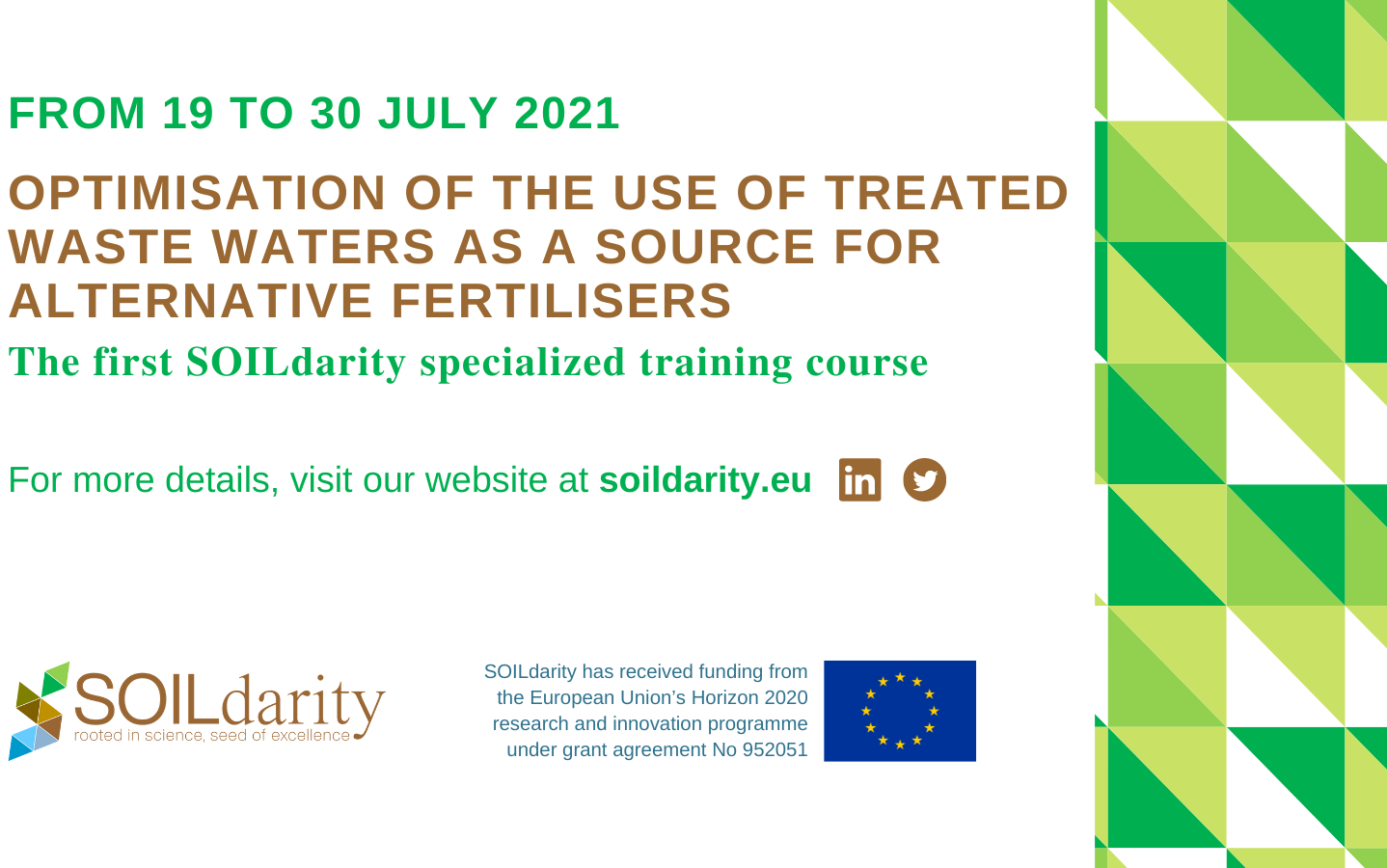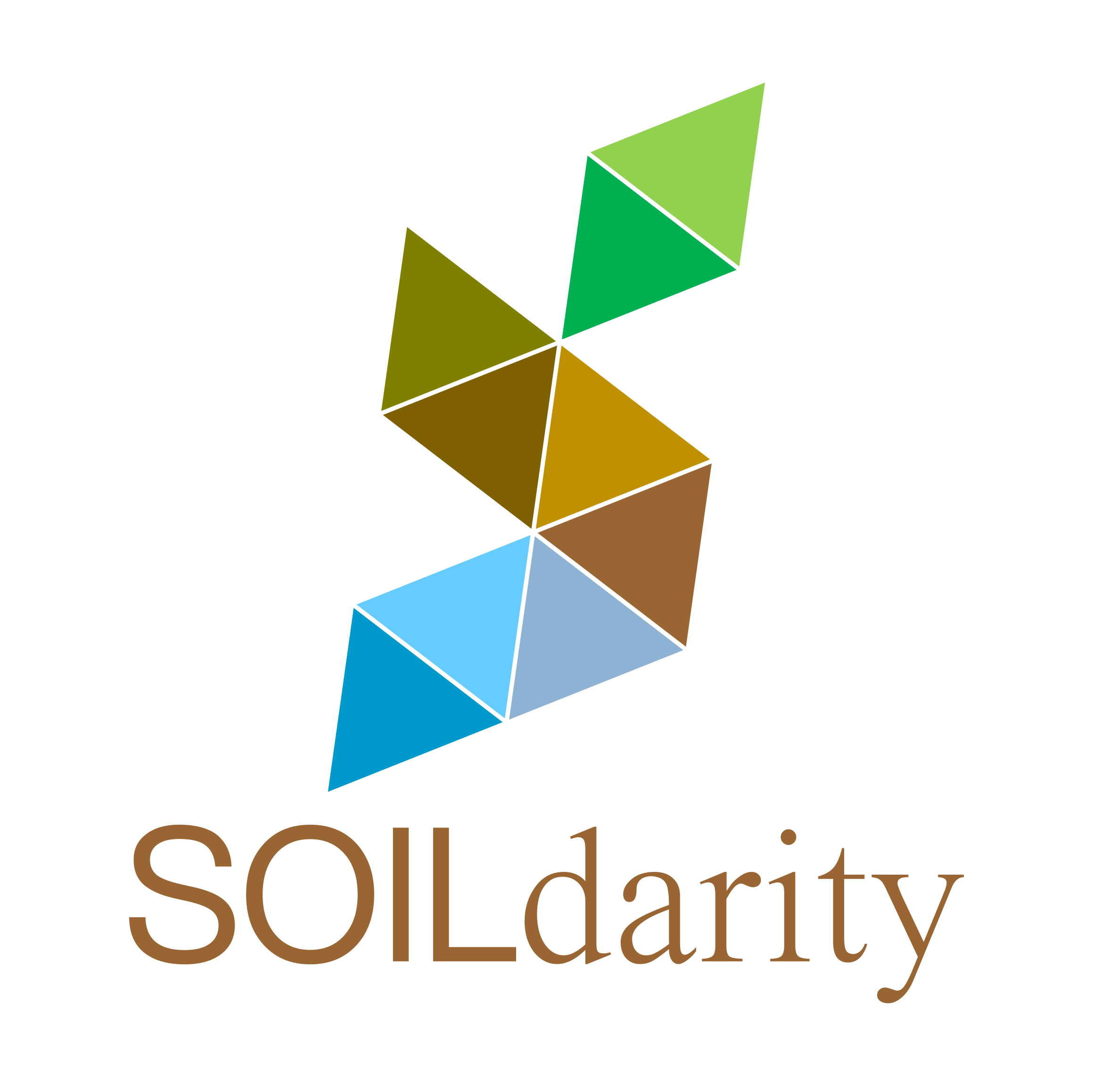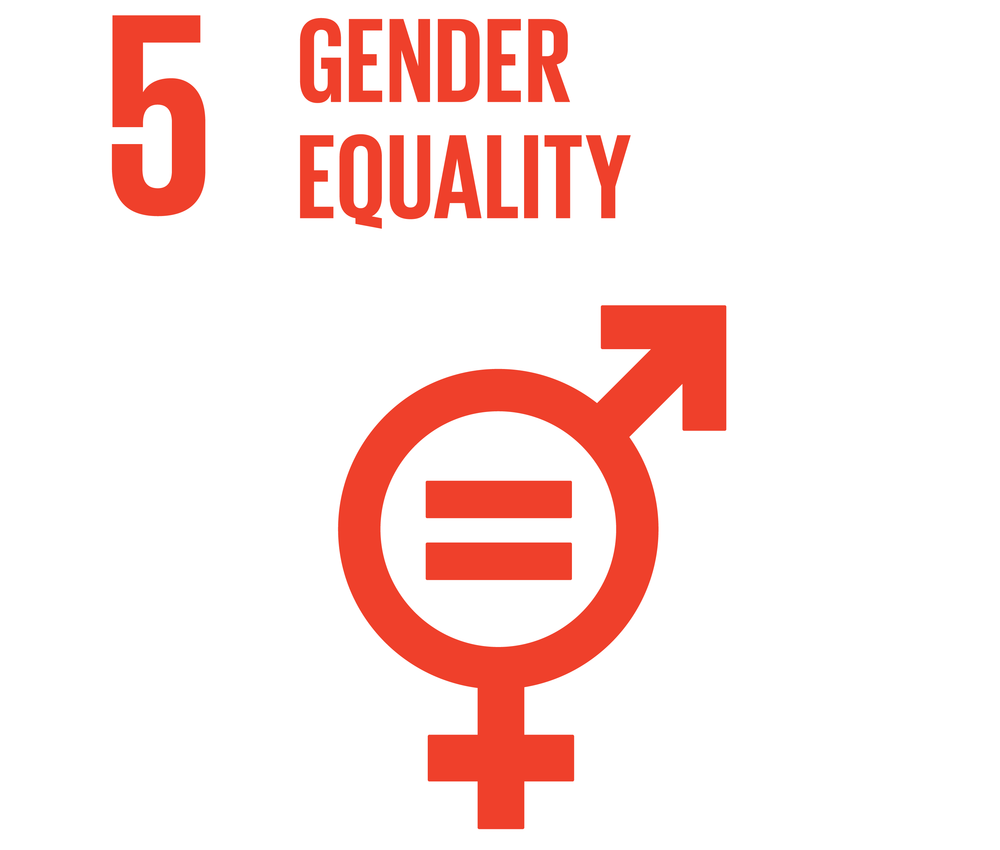
The first SOILdarity training course is getting started!
Phosphorous (P), a non-renewable resource, has been applied extensively in farm fields and orchards to increase crop yield, yet consequently has increased the potential of waterway eutrophication. Hence, there is an urgent need to develop an innovative method of P capturing, recycling and reuse that will sustain agricultural productivity while concurrently reducing the level of P discharge from and to agricultural settings.
Against this background, SOILdarity has organized a multi-module course on the “Optimisation of the use of treated wastewater as a source for alternative fertilisers”.
The course is totally free of charge but
places are limited, so hurry up! Registration is open until 9* July 2021, 23:59 (Portugal Time).
The Content of the Course
The course is held by Prof. M. Iggy Litaor, who leads the MIGAL team, which is also made up of the Lab. Assistants Oren Reichman and Adi Zarka.
They will explain the principle behind MIGAL’s new patent on the subject and will address the following topics:
- Introduction to P cycling including eutrophication processes of water ways, expected global P scarcity and its influence on the green revolution;
- Physical and chemical characteristics of alum residue (Al-WTR);
- Mechanism of adsorption capacity of Al-WTR;
- Adsorption kinetic models;
- Adsorption equilibrium isotherm models;
- Adsorption dependency on pH;
- P adsorption is more favoured by small/fine particle size ranges than with bigger sized particles;
- Results of retention time; dependency on experimental conditions;
- Competitive Ions;
- Dosage of adsorbent.
When & Where

19-23 July 2021 (Theoretical Module via Zoom)
26-30 July (Presential Practical Module)

Both theoretical and practical classes will be held from 9:00 – 17:00 (Portugal time)

The practical module will take place at Faculdade de Ciências- Universidade de Lisboa
The course is open to researchers and students from FC.ID and the Faculty of Science of the University of Lisbon who have an adequate background and knowledge of the course subject.
How to participate
Would you like to participate or receive more information on the course?
Nothing more simple!
You can click here below
or copy and paste this https://forms.gle/Vm3txF8Zy3g3NxFJ6 into your web browser.
If you’d like to receive more information, you can email us at
ccruz[at]fc.ul.pt | Prof. Cristina Cruz (FCUL)
or
amventura[at]fc.ul.pt | Ana Maria Ventura (FCUL)
*NEW DATE. Due to the large amount of requests we received in the last days, we decided to postpone the deadline by 3 days. The registration process was originally due to end on 6 July.


